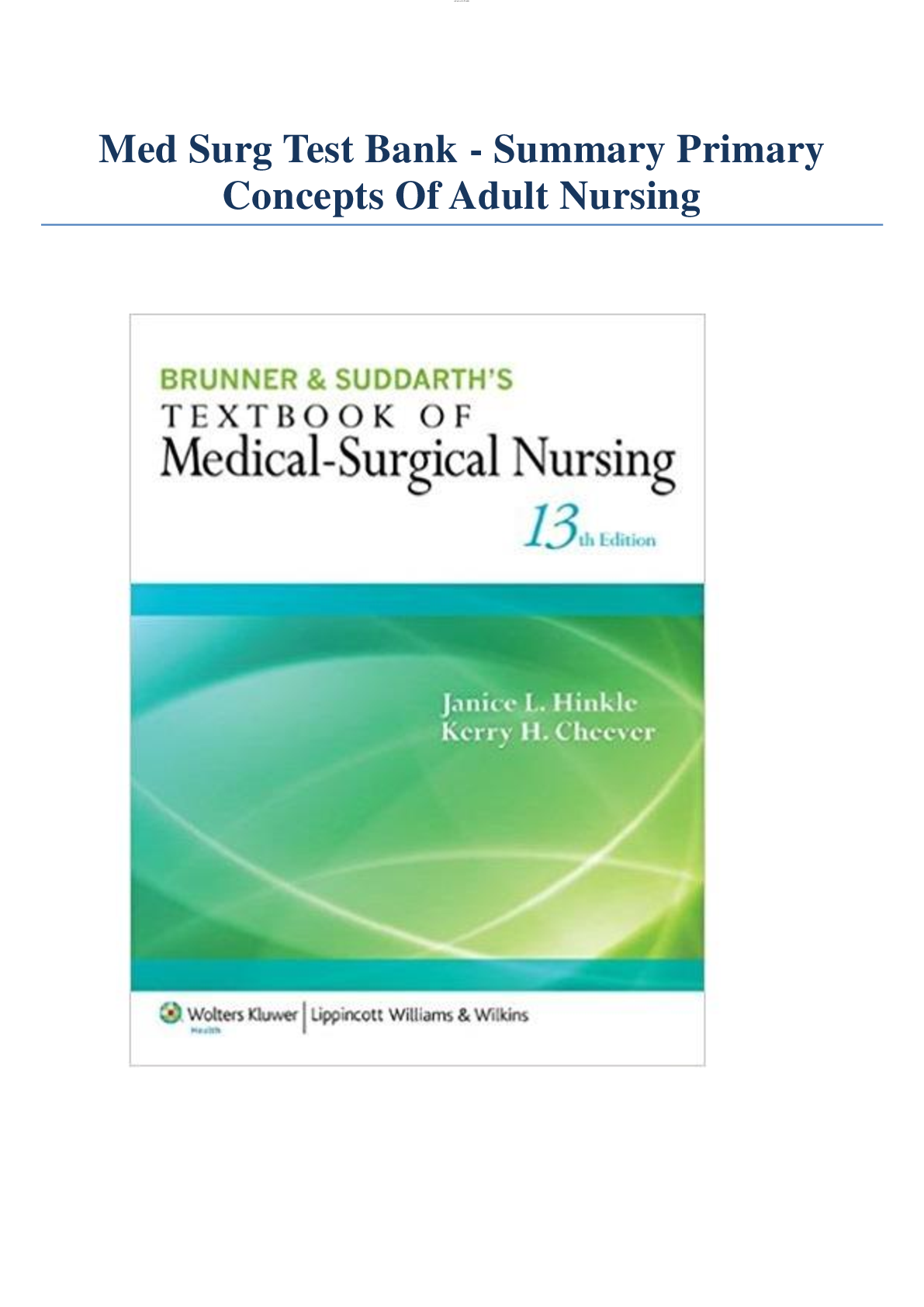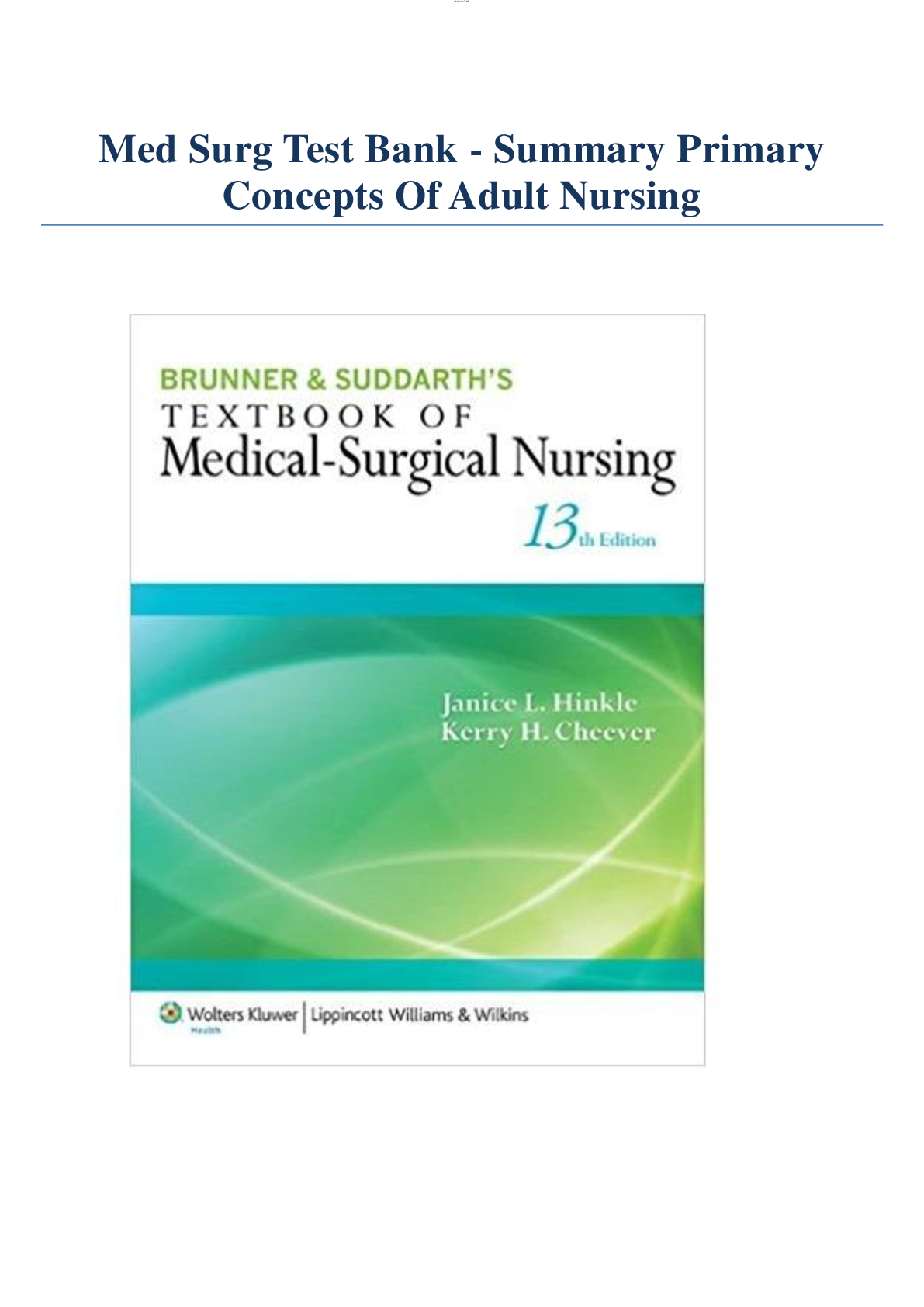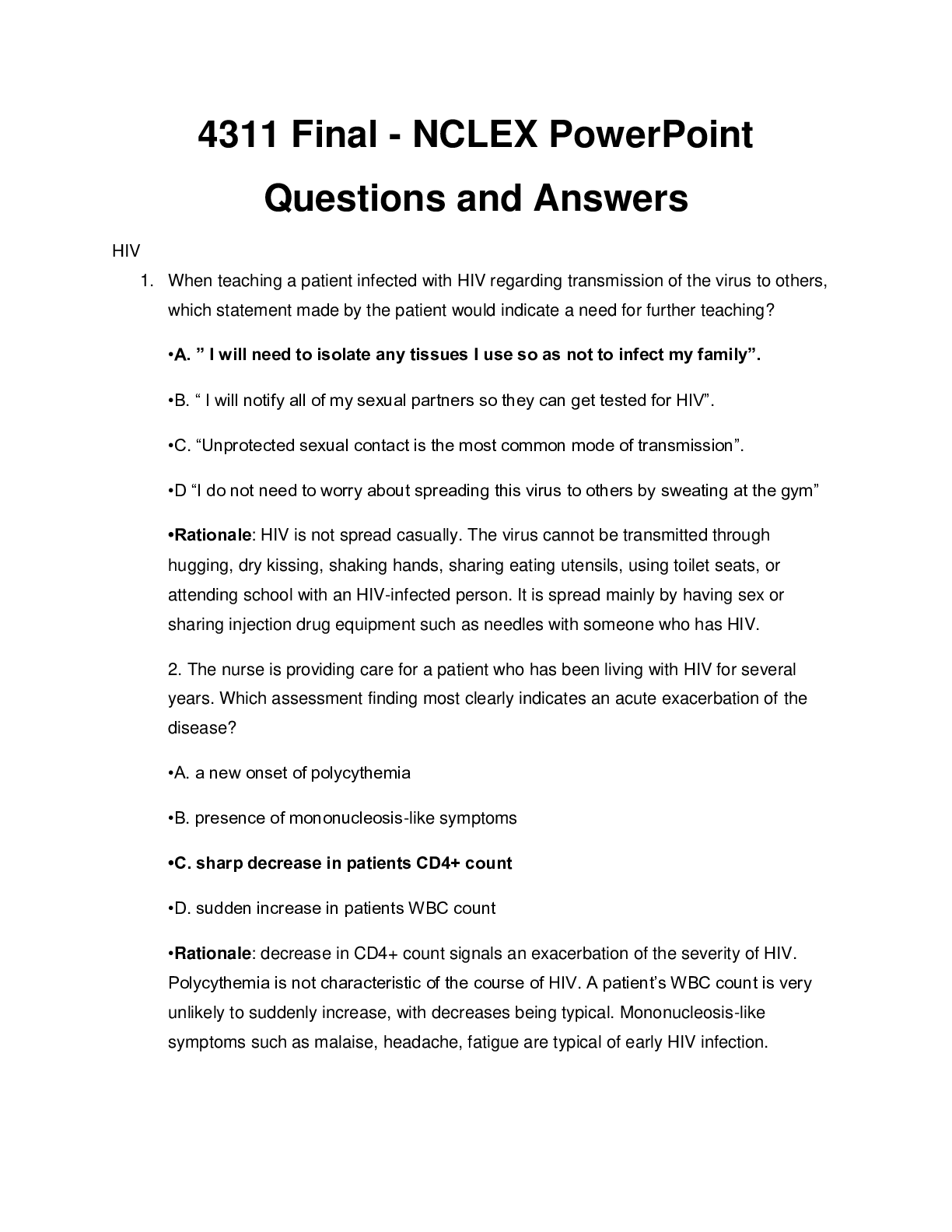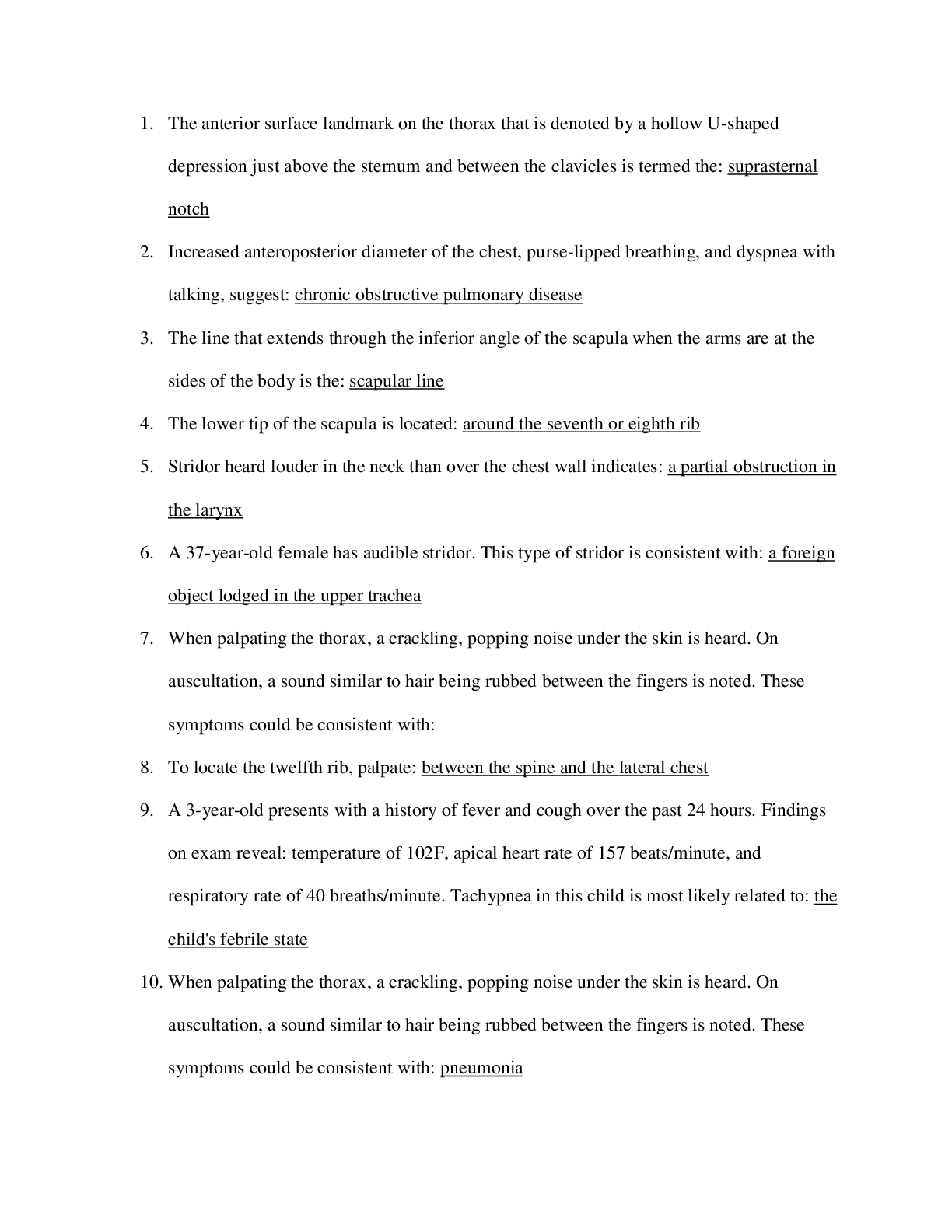*NURSING > QUESTIONS & ANSWERS > ATI Adult Nursing (NUR 105) Med Surg test questions Chapter 12: Pain Management Graded A, Latest Que (All)
ATI Adult Nursing (NUR 105) Med Surg test questions Chapter 12: Pain Management Graded A, Latest Questions and Answers with Explanations, All Correct Study Guide, Download to Score A
Document Content and Description Below
ATI Adult Nursing (NUR 105) Med Surg test questions Chapter 12: Pain Management Graded A, Latest Questions and Answers with Explanations, All Correct Study Guide, Download to Score A Pain Managemen... t 1. The nurse who is a member of the palliative care team is assessing a patient. The patient indicates that he has been saving his PRN analgesics until the pain is intense because his pain control has been inadequate. What teaching should the nurse do with this patient? 2. Two patients on your unit have recently returned to the postsurgical unit after knee arthroplasty. One patient is reporting pain of 8 to 9 on a 0-to-10 pain scale, whereas the other patient is reporting a pain level of 3 to 4 on the same pain scale. What is the nurses most plausible rationale for understanding the patients different perceptions of pain? 3. You are frequently assessing an 84-year-old womans pain after she suffered a humeral fracture in a fall. When applying the nursing process in pain management for a patient of this age, what principle should you best apply? 4. The nurse is assessing a patients pain while the patient awaits a cholecystectomy. The patient is tearful, hesitant to move, and grimacing. When asked, the patient rates his pain as a 2 at this time using a 0-to-10 pain scale. How should the nurse best respond to this assessment finding? 5. You are creating a nursing care plan for a patient with a primary diagnosis of cellulitis and a secondary diagnosis of chronic pain. What common trait of patients who live with chronic pain should inform your care planning? 6. The nurse is caring for a 51-year-old female patient whose medical history includes chronic fatigue and poorly controlled back pain. These medical diagnoses should alert the nurse to the possibility of what consequent health problem? 7. Your patient has just returned from the postanesthetic care unit (PACU) following left tibia open reduction internal fixation (ORIF). The patient is complaining of pain, and you are preparing to administer the patients first scheduled dose of hydromorphone (Dilaudid). Prior to administering the drug, you would prioritize which of the following assessments? 8. Your patient is receiving postoperative morphine through a patient-controlled analgesic (PCA) pump and the patients orders specify an initial bolus dose. What is your priority assessment? 9. Your patient is 12-hours post ORIF right ankle. The patient is asking for a breakthrough dose of analgesia. The pain-medication orders are written as a combination of an opioid analgesic and a nonsteroidal anti-inflammatory drug (NSAID) given together. What is the primary rationale for administering pain medication in this manner? 10. The nurse is caring for a patient with metastatic bone cancer. The patient asks the nurse why he has had to keep getting larger doses of his pain medication, although they do not seem to affect him. What is the nurses best response? [Show More]
Last updated: 2 years ago
Preview 1 out of 45 pages
 Med Surg test questions Chapter 12 Pain Management.png)
Buy this document to get the full access instantly
Instant Download Access after purchase
Buy NowInstant download
We Accept:

Reviews( 0 )
$15.00
Can't find what you want? Try our AI powered Search
Document information
Connected school, study & course
About the document
Uploaded On
May 02, 2021
Number of pages
45
Written in
Additional information
This document has been written for:
Uploaded
May 02, 2021
Downloads
0
Views
133
, Latest Questions and Answers with Explanations, All Correct Study Guide, Download to Score A.png)


 Questions and Answers (latest Update), All Correct, Download to Score A.png)





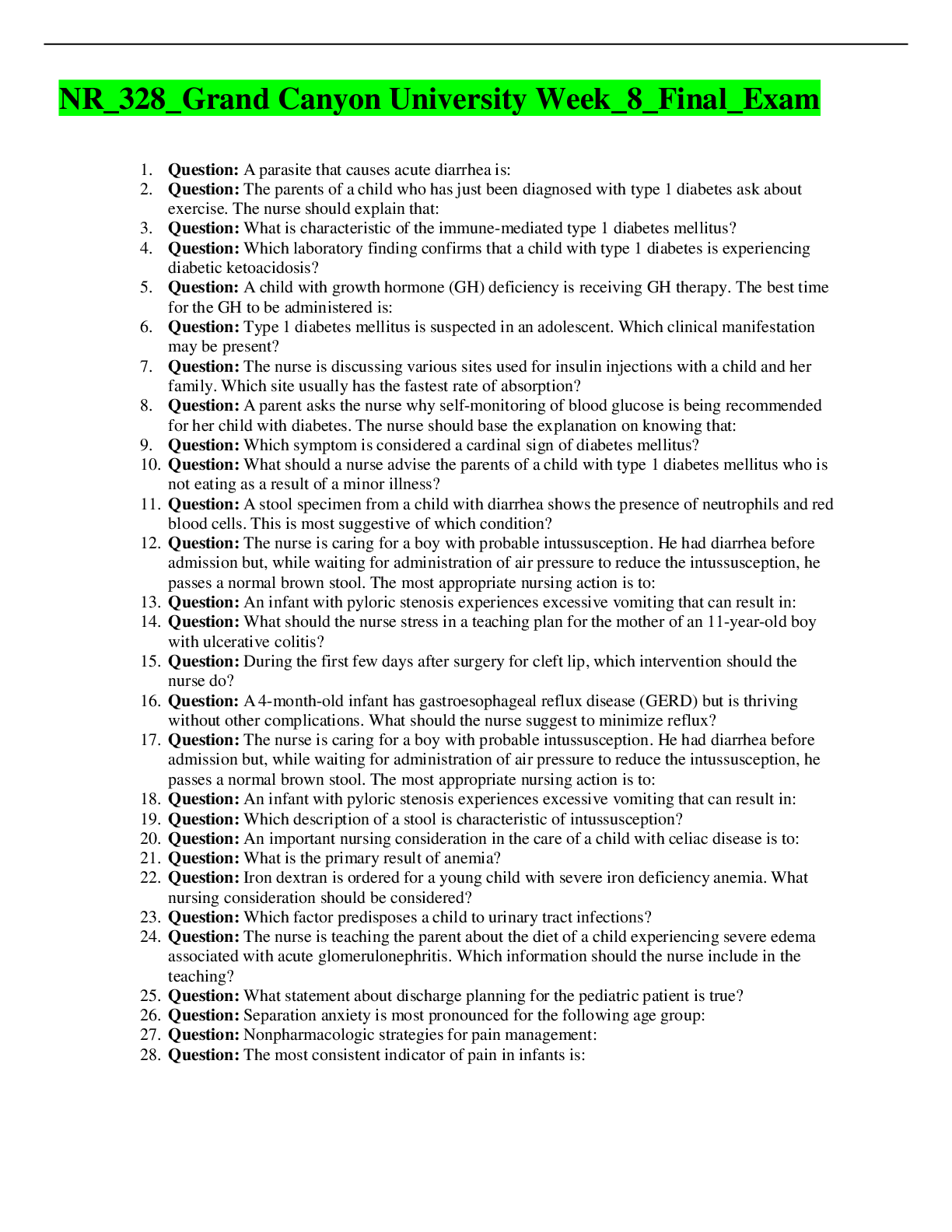
, (A Grade), Questions and Answers, All Correct Study Guide, Download to Score A.png)
, Questions and Answers, All Correct Study Guide, Download to Score A.png)
, Latest Questions and Answers with Explanations, All Correct Study Guide, Download to Score A.png)



